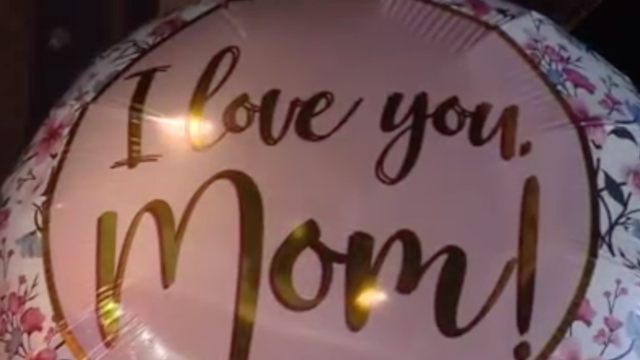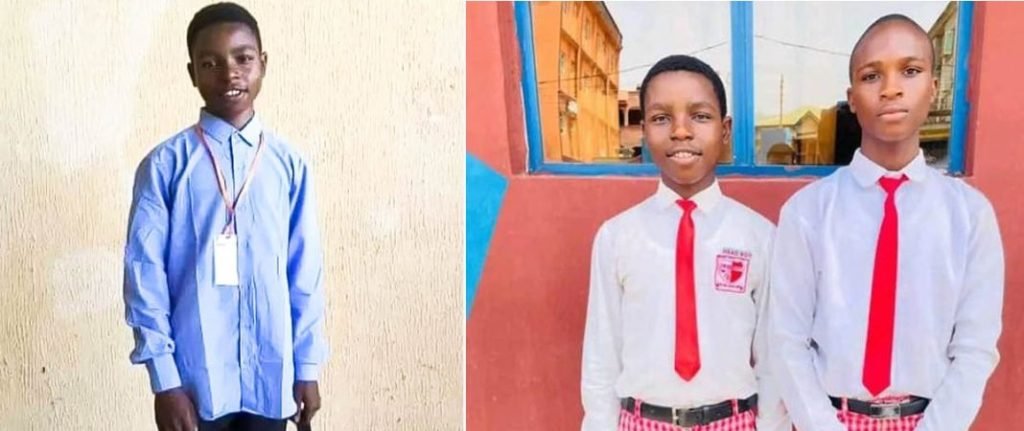Inside Lagos Abandoned Special Children’s Centre where Reptiles, Dogs Thrive

Source: https://punchng.com/
Temilade, a 16-year-old with cerebral palsy, is now confined to her home, unable to communicate or care for herself. Her condition has worsened significantly since the closure of the Ketu Special Children’s Centre, where she previously received essential care and therapy. Before the center was shut down, Temilade eagerly awaited the arrival of the government bus each morning, excited for another day of learning and activities. However, since then, her once bright spirit has faded, and her health has declined.
The bus that would arrive at 8 am each day was a familiar sight in Temilade’s Ikorodu neighborhood. It brought a cheerful driver and caregivers who would escort Temilade and other children with disabilities to the Ketu Special Children’s Centre. Built in Mile 12, the center was designed to serve children with special needs from Ikorodu, Ketu, and Bariga in the Kosofe and Ikorodu Local Government Areas. At the center, Temilade received speech therapy, physiotherapy, and occupational therapy to help improve her communication, mobility, and daily living skills.
Due to the therapy and care she received at the Ketu Special Children’s Centre, 16-year-old Temilade had made significant progress, improving her communication and mobility. However, her life changed when the government shut down the center, citing structural issues. This decision shocked her mother, a single parent who relied on the center for her daughter’s care.
Without support, Temilade’s mother struggled to manage, often locking Temilade up to go to work. As a result, Temilade’s condition worsened, her muscles stiffened, her mobility declined, and her ability to communicate diminished. Mrs. Joko Dawodo-Omotola, president of the Association for Intellectual and Developmental Disabilities of Nigeria, expressed deep concern over the devastating impact of the shutdown on Temilade and her family.
Muiz, an abandoned child with crippled legs, was discovered living on the streets, enduring isolation and neglect. He was taken to Massey Children’s Hospital, but the hospital lacked the specialized care he needed, leaving him in a hopeless situation.
Elsie Akerele later brought him to the Atinuke Oyindamola Memorial Home, hoping to provide the care he deserved. However, the home was severely underfunded and lacked the medical resources required to treat Muiz’s condition. Akerele expressed that the now-closed Ketu Special Children’s Centre would have been a better facility for Muiz. She lamented that many children like him, lacking adequate resources, have passed away without the care they needed to thrive.
Like Temilade and Muiz, many children with special needs, who once received care at the Ketu Special Children’s Centre, are now struggling for survival at the hands of their often uninformed and overwhelmed parents. Some children, like Temilade, are fortunate to have parents who do their best, while others, like Muiz, were abandoned when caregivers could no longer cope. This neglect has resulted in the deaths of many children and left others ridiculed in public.
The country faces a severe lack of services for children with special needs, with parents left to care for them alone. The closure of the Ketu Special Children’s Centre has worsened this situation, leaving families who relied on the facility’s support and specialized services in distress. The center, established in 2011, was meant to provide care for children with physical, intellectual, and developmental disabilities.
The Ketu Special Children’s Centre, an initiative by former Lagos State Deputy Governor Mrs. Adejoke Orelope-Adefulire, was a state-of-the-art facility offering essential therapies, a clinic, a mini stadium, and vocational training spaces for children with special needs. It provided a holistic approach to care and was a lifeline for many families, especially those from low-income areas like Ketu, Bariga, and Ikorodu.
For six years, it supported children’s therapy and gave parents, often single mothers, a chance to work and care for other responsibilities. However, under Governor Akinwunmi Ambode, the center was transferred to a different ministry and, in 2017, shut down due to claimed structural defects, despite its success. Children were relocated to a distant, overcrowded facility in Yaba, which was difficult for families to access due to transportation costs. With no access to vital therapies, many children’s conditions worsened, leading to a cycle of despair for their families.
A visit to the abandoned Ketu Special Children’s Centre revealed the extent of its neglect. Once a vibrant sanctuary for children like Temilade, the compound is now overrun with weeds and overgrown grass. Play areas are now home to reptiles and stray dogs, and the buildings are in disrepair, with faded paint, shattered windows, and crooked doors. The mini stadium, once a hub of recreational activity, is now a cracked, weed-covered space with broken goalposts. The children’s beds, once a source of comfort, are now ruined with torn, stained mattresses scattered across the rooms. The facility, once full of life, is now a forgotten, decaying shell of its former self.
Children like Temilade, who once received therapy, have seen their conditions worsen without the support of the centre. Muiz, another child with special needs, also suffers from a lack of proper care. The centre, which once featured therapy rooms, a clinic, and a recreational stadium, is now overtaken by weeds, with broken equipment and empty rooms. The abandoned facility stands as a symbol of the government’s neglect of children with special needs, leaving families to face increasing hardships. The AIDDN president expressed frustration, highlighting the dire need for specialized care and the financial burdens placed on parents.
Dawodu-Omotola expressed deep concern about the impact of the Ketu Special Children’s Centre closure on children with special needs. The lack of access to therapy and the financial burden of transportation has left many children without care, leading to their deterioration. Parents, particularly single mothers, are forced to keep their children at home, where they are often neglected and vulnerable to health emergencies. Dawodu-Omotola noted that some children have died at home due to the absence of proper care. She emphasized the devastating effect of the closure on families, who now struggle without the support the centre once provided.
A mother from Ikorodu, whose child has cerebral palsy, faces overwhelming challenges to get her child the care needed. Every two weeks, she makes an exhausting journey to the National Orthopaedic Hospital in Igbobi, spending a significant amount of borrowed money for a taxi ride that costs N35,000 each way. Despite the financial strain, she remains determined to secure surgery for her child.
However, upon arrival at the hospital, she was told to start the entire process over, including assessments and therapy. This added to her burden, but eventually, the surgery was approved, though it was more expensive than expected. The mother reflects that if the Ketu Special Children’s Centre had still been operational, her son might have received earlier therapy that could have prevented the need for surgery. The narrative also touches on a father similarly struggling for his daughter with cerebral palsy, emphasizing the profound challenges faced by families of children with special needs.
A father, exhausted by years of caring for his daughter with cerebral palsy, struggled to raise the necessary funds for a N15,000 taxi fare to take her to a crucial appointment at Igbobi Hospital. After reaching out for help, the president of the Association for Intellectual and Developmental Disabilities of Nigeria (AIDDN) provided financial assistance, lamenting that if the Ketu Special Children’s Centre had remained open, the father wouldn’t have had to face such a financial struggle.
Additionally, there are allegations that the Lagos State government has been abandoning children with disabilities, transferring them to private care homes without providing the necessary financial support or medical resources, leaving facilities like the Atinuke Oyindamola Memorial Home to shoulder the burden.
Stakeholders call for Reactivation of the Home
Elsie Akerele, who has been running a care home for children with disabilities for over 30 years, described how government officials often abandon children with severe disabilities at her facility, leaving no records or background information. She emphasized that these children, deemed too costly for the government to care for, require medical treatment she cannot afford, placing an enormous burden on her. Akerele criticized the government’s failure to take responsibility, forcing her to cover medical, educational, and daily expenses without any assistance. She expressed frustration that the government only provides occasional donations rather than consistent support.
Rose Mordi, CEO of the Down Syndrome Foundation of Nigeria, echoed these concerns, stating that many care homes are overwhelmed and financially strained, often taking in abandoned children without adequate resources. She also highlighted the tragic cases where families, unable to care for children with disabilities, either abandon or even harm them. Both Akerele and Mordi called for greater government involvement and support.
Additionally, Akerele raised concerns about police refusal to assist abandoned children with special needs, recounting instances where authorities turned away children brought to them by caregivers, further highlighting the systemic neglect and discrimination faced by these vulnerable children.
Advocates and caregivers in Lagos are urging Governor Babajide Sanwo-Olu to reactivate the abandoned children’s home in Ketu, which was initially established to support children with intellectual and developmental disabilities. They emphasize the urgent need for a dedicated facility to provide care, education, healthcare, and vocational training for children with special needs, particularly in areas like Kosofe, Bariga, and Ikorodu, where these children are isolated due to lack of services.
Dawodu-Omotola, president of AIDDN, expressed frustration over the government’s failure to act on its initial commitment to rehabilitate the Ketu facility. She stressed that children with intellectual disabilities require specialized education and vocational training, which is only possible with skilled, patient professionals.
Mordi, CEO of the Down Syndrome Foundation, highlighted the potential of the Ketu facility to serve as a model for inclusive care and noted that significant resources had been invested in it. She questioned why the facility was abandoned despite the support it received.
Other stakeholders, including the founder of Atinuke Oyindamola Memorial Home, warned that without proper government support, children with disabilities would continue to face neglect, exploitation, and abandonment. Despite these concerns, when contacted, officials from the Lagos Ministry of Youth and Social Development did not provide answers, redirecting inquiries and failing to respond to further requests.
Image Source: https://punchng.com/





